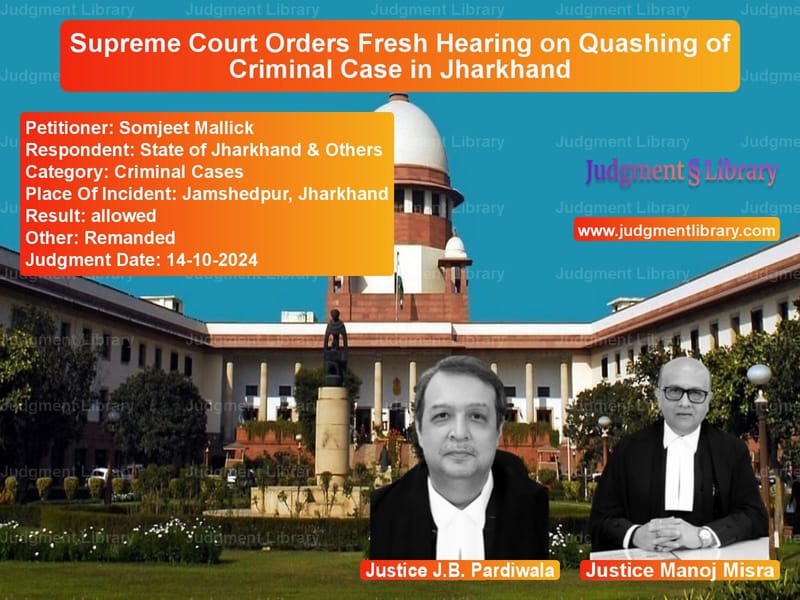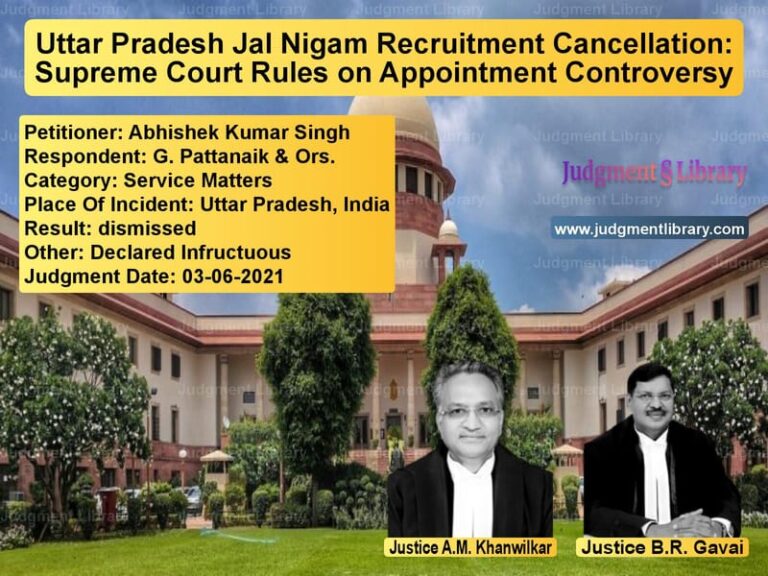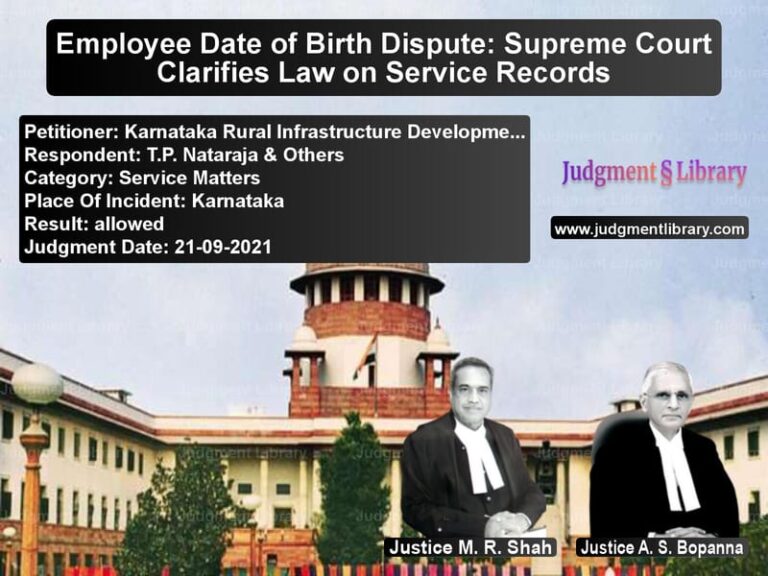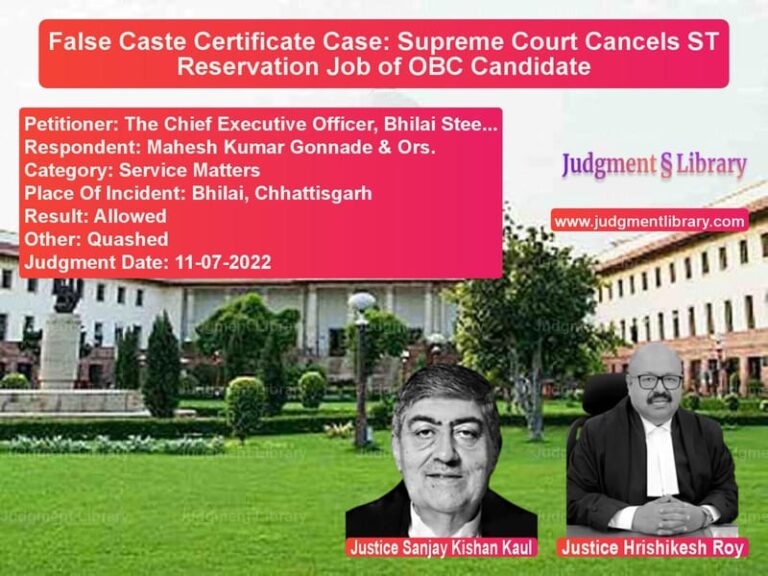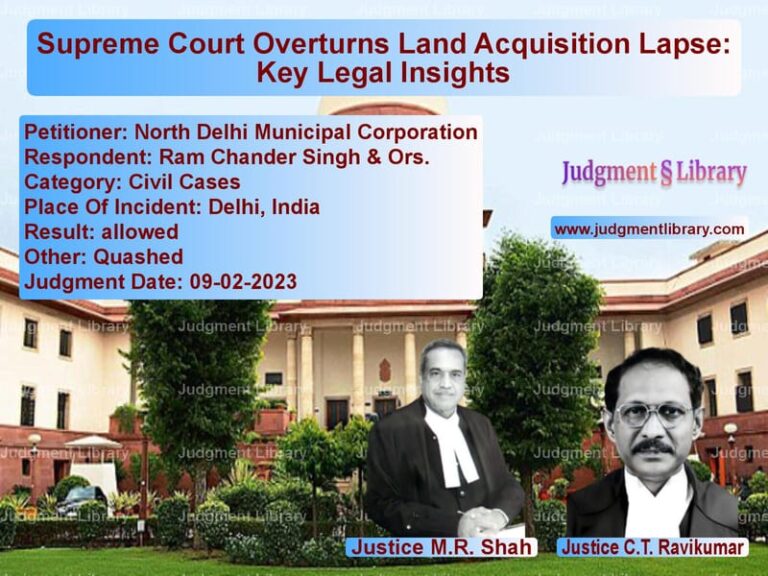Supreme Court Orders Fresh Hearing on Quashing of Criminal Case in Jharkhand
The Supreme Court has set aside a judgment of the High Court of Jharkhand that had quashed the criminal proceedings against the accused in a dispute over the non-payment of rental dues for a truck. The case involves allegations of criminal breach of trust and cheating under Sections 406 and 420 of the Indian Penal Code (IPC).
The appellant, Somjeet Mallick, had leased his truck to the accused under a contractual agreement, but payments were allegedly not made as promised. After an FIR was registered, the Chief Judicial Magistrate (CJM) took cognizance of the case. However, the High Court quashed the proceedings, citing the dispute as a civil matter rather than a criminal offense. The Supreme Court has now remanded the case back to the High Court for fresh consideration, emphasizing the need for examining the evidence gathered during the police investigation.
Background of the Case
The case arose when the appellant, Somjeet Mallick, entered into an agreement on July 10, 2014, with the accused to lease his truck (Trailer No. NL 01K 1250) for transportation services between Tata Steel Jamshedpur and Kalinganagar. The agreed rent was Rs. 33,000 per month, exclusive of driver and helper wages. Although the accused paid one month’s rent after deducting TDS, subsequent payments were not made, resulting in an outstanding amount of Rs. 12,49,780.
Following failed attempts to recover the dues, the appellant filed a complaint under Section 156(3) of the CrPC. On November 12, 2016, the CJM directed the police to register a case and investigate. However, the accused failed to appear despite being served notices under Section 41A CrPC, leading the CJM to issue non-bailable warrants (NBW) on June 30, 2017.
High Court’s Decision
The accused filed an application under Section 482 CrPC seeking to quash the proceedings. They argued that:
- No agreement was executed, and the claim was false.
- The rent was not paid because the necessary vehicle documents were not provided.
- The allegations did not disclose a criminal offense, as the dispute was purely civil.
The High Court, in its judgment dated February 1, 2024, agreed with the accused and quashed the FIR, holding that the non-payment of rent did not constitute a criminal offense under Sections 406 and 420 IPC.
Supreme Court’s Findings
In its judgment delivered by Justices J.B. Pardiwala and Manoj Misra, the Supreme Court overturned the High Court’s decision, stating that it failed to consider crucial aspects, including the police investigation and the existence of dishonest intent.
Key Observations of the Supreme Court
- “The High Court erred in quashing the FIR without considering the material collected during the investigation.”
- “The FIR should not be viewed in isolation but in the context of the allegations and supporting evidence.”
- “The fact that rent was paid only for one month and thereafter not paid despite repeated assurances indicates dishonest intent.”
- “The whereabouts of the truck remain unknown, raising questions about possible misappropriation.”
Legal Principles Established
The judgment reaffirmed important legal principles:
- Mens Rea and Cheating: If a person takes possession of a vehicle with a promise to pay rent and subsequently fails to do so, while making false assurances, it can indicate dishonest intent, justifying an investigation.
- Quashing FIRs: Courts should not quash FIRs at the threshold without considering the investigation findings, especially when allegations disclose a cognizable offense.
- Criminal vs. Civil Disputes: Just because a dispute has a contractual element does not mean that criminal liability cannot arise if fraud or misappropriation is involved.
Final Judgment
The Supreme Court allowed the appeal and set aside the High Court’s order. It remanded the case back to the High Court with directions to re-examine the case while considering the police investigation report. The High Court must determine whether the evidence supports the charges and decide the case afresh.
This decision underscores the principle that criminal proceedings should not be quashed prematurely without due scrutiny of all available evidence. The Supreme Court’s ruling ensures that serious allegations of fraud and breach of trust receive proper judicial consideration.
Petitioner Name: Somjeet Mallick.Respondent Name: State of Jharkhand & Others.Judgment By: Justice J.B. Pardiwala, Justice Manoj Misra.Place Of Incident: Jamshedpur, Jharkhand.Judgment Date: 14-10-2024.
Don’t miss out on the full details! Download the complete judgment in PDF format below and gain valuable insights instantly!
Download Judgment: somjeet-mallick-vs-state-of-jharkhand-&-supreme-court-of-india-judgment-dated-14-10-2024.pdf
Directly Download Judgment: Directly download this Judgment
See all petitions in Fraud and Forgery
See all petitions in Theft and Robbery Cases
See all petitions in Judgment by J.B. Pardiwala
See all petitions in Judgment by Manoj Misra
See all petitions in allowed
See all petitions in Remanded
See all petitions in supreme court of India judgments October 2024
See all petitions in 2024 judgments
See all posts in Criminal Cases Category
See all allowed petitions in Criminal Cases Category
See all Dismissed petitions in Criminal Cases Category
See all partially allowed petitions in Criminal Cases Category

